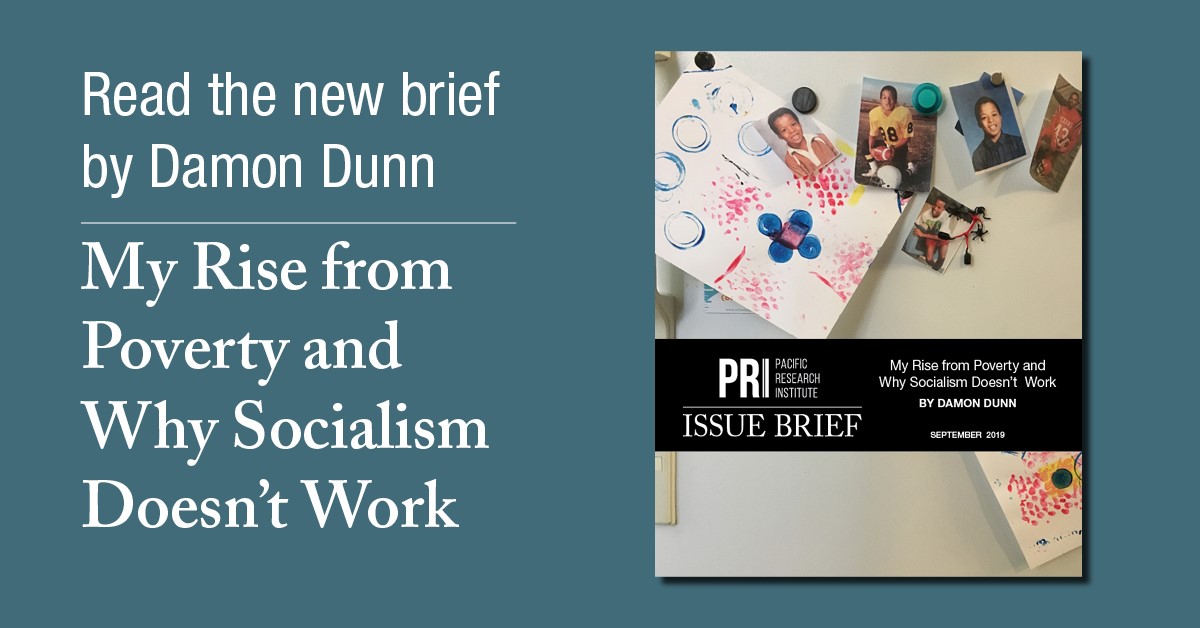Despite evidence of a recent slowdown, the American economy is strong according to nearly all traditional economic indicators and has been for multiple years.
Nearly a decade of economic expansion has led to record highs being recorded in the stock market, housing prices, and wages. The recent strengthening of economic growth is due to many factors, including the 2017 Tax Reform and a pro-growth platform of deregulation, as well as other less sanguine factors such as high sustained deficits and monetary policy that remains loose by historical standards.
The strong recent performance of the economy obscures a sadder reality, decades in the making; the plight of ordinary working Americans. Too often media tends to focus on nearly meaningless day to day variations in market indicators rather than investigate the deeper cultural impacts of long-term economic decline in many towns across our country.
A recent study clearly demonstrated the relationship between job loss, particularly in manufacturing, and a host of other social ills, including a decline in marriage rates and a corresponding increase in single parenthood and unmarried births. This is a particular concern given the recent evidence that the most significant factor predicting social mobility is the rate of single parenthood in a community.
Instead of honestly and forthrightly addressing the very real issues plaguing too many American communities, the political response has been to either ignore the issue entirely or, even worse, exploit its repercussion for political gain.
The political agenda is set entirely by those who have benefited from our existing system, from those who propose policy (academics) to those who pass it (politicians) and those who implement it (bureaucratic state). It is unreasonable to expect people drawn from this class of our society to genuinely represent the interests of those living in communities of despair, especially given the social cleavage clearly demonstrated in recent work by Charles Murray and others. Murray argues that some regions of the U.S. persistently offer less mobility than most other developed countries. The political parties leverage these divided and blighted geographic regions and galvanize them into voting blocs to control public policy.
These issues have manifested in a stark rise in the rhetoric and the curiosity of socialism in our country, and a far more sinister development among the social fringes of our European allies, including the rise of totalitarian ideologies like fascism and communism knocking at the doorstep of meaningful parliamentary representation in some places. Italian Deputy Prime Minister Matteo Salvini, leader of the Far-Right League, France’s Marine Le Pen, leader of National Rally and leaders from nine other nationalist parties are pushing for their Europe of Nations and Freedom (ENF) group to become the European parliament’s third biggest party after the forthcoming elections. While the reaction is understandable among those who have felt nothing but disdain from the self-appointed ruling class for decades, the supposed cure is far worse than the disease, and a lie regardless.
To be clear, reactionary socialism and the strengthening of the state are not the answer for what ails this nation or any other. That’s the trap. The rhetoric will be used to institute socialist policies that fail. That is when socialism leads to totalitarianism. People grow frustrated. Socialists risk losing power. To protect their power to reengineer society, they pursue totalitarianism. It’s a trap. Just look at all the examples in history.
Free market proponents must combat the easy answers that socialism seemingly offers with policies that empower Americans to win our own future. Most people want to take care of themselves – not the government. They just want a level playing field.
Damon Dunn is a fellow in business and economics at the Pacific Research Institute.


